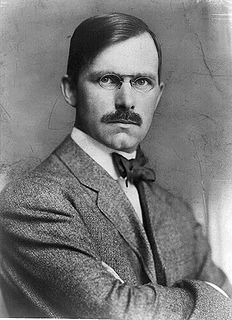A Quote by Ray Stannard Baker
At first everyone predicted that it would be impossible to hold these divergent people together, but aside from the skilled men, some of whom belonged to craft unions, comparatively few went back to the mills. And as a whole, the strike was conducted with little violence.
Related Quotes
A whole big, giant world full of men. Men with blue eyes. Brown eyes. Green eyes. And indescribable shades in between. Tall men. Short men. Skinny men. Built men. And all combinations thereof. Nice men (so I've heard, but never really seen). Mean men. Decent men, indecent. And who knows which is the best kind to have, to hold, to love? I'd say, with so many men in the world, it would pay to sample a few. Scratch that. More than a few. Lots and lots. And then a few more. And maybe, after years of research, you might find one worth not throwing back. But hey, the fun is in the fishing.
Today in America, unions have a secure place in our industrial life. Only a handful of reactionaries harbor the ugly thought of breaking unions and depriving working men and women of the right to join the union of their choice. I have no use for those - regardless of their political party - who hold some vain and foolish dream of spinning the clock back to days when organized labor was huddled, almost as a hapless mass. Only a fool would try to deprive working men and women of the right to join the union of their choice.
The poet, as everyone knows, must strike his individual note sometime between the ages of fifteen and twenty-five. He may hold it a long time, or a short time, but it is then that he must strike it or never. School and college have been conducted with the almost express purpose of keeping him busy with something else till the danger of his ever creating anything is past.
I invented nothing new. I simply assembled the discoveries of other men behind whom were centuries of work. Had I worked fifty or ten or even five years before, I would have failed. So it is with every new thing. Progress happens when all the factors that make for it are ready, and then it is inevitable. To teach that a comparatively few men are responsible for the greatest forward steps of mankind is the worst sort of nonsense.
One would naturally expect that the Lord Jesus Christ would be sufficiently important to receive ample notice in the literature of his time, and that extensive biographical material would be available. He was observed by multitudes of people, and his own followers numbered into the hundreds (1 Cor. 15:6), whose witness was still living in the middle of the first century. As a matter of fact, the amount of information concerning him is comparatively meager. Aside from the four Gospels, and a few scattered allusions in the epistles, contemporary history is almost silent concerning him.
These missiles [Cruise and Pershing II] represent a new generation of missiles whose deployment will help give NATO first-strike capability. With this first-strike strategy, the West believes it could attack Russian military installations with such effectiveness that serious retaliation would be impossible.
Think of it! A few more boats, a few more planks of wood nailed together in a particular way at a thrifty cost and all those men and women whom the world can so ill afford to loose would be with us today. There would be no mourning in thousands of homes which now are desolate and these words need not have been written.
Revenge tries to solve the problem of vulnerability. If I strike back, I transfer vulnerability from myself to the other. And yet by striking back I produce a world in which my vulnerability to injury is increased by the likelihood of another strike. So it seems as if I'm getting rid of my vulnerability and instead locating it with the other, but actually I'm heightening the vulnerability of everyone and I'm heightening the possibility of violence that happens between us.

































